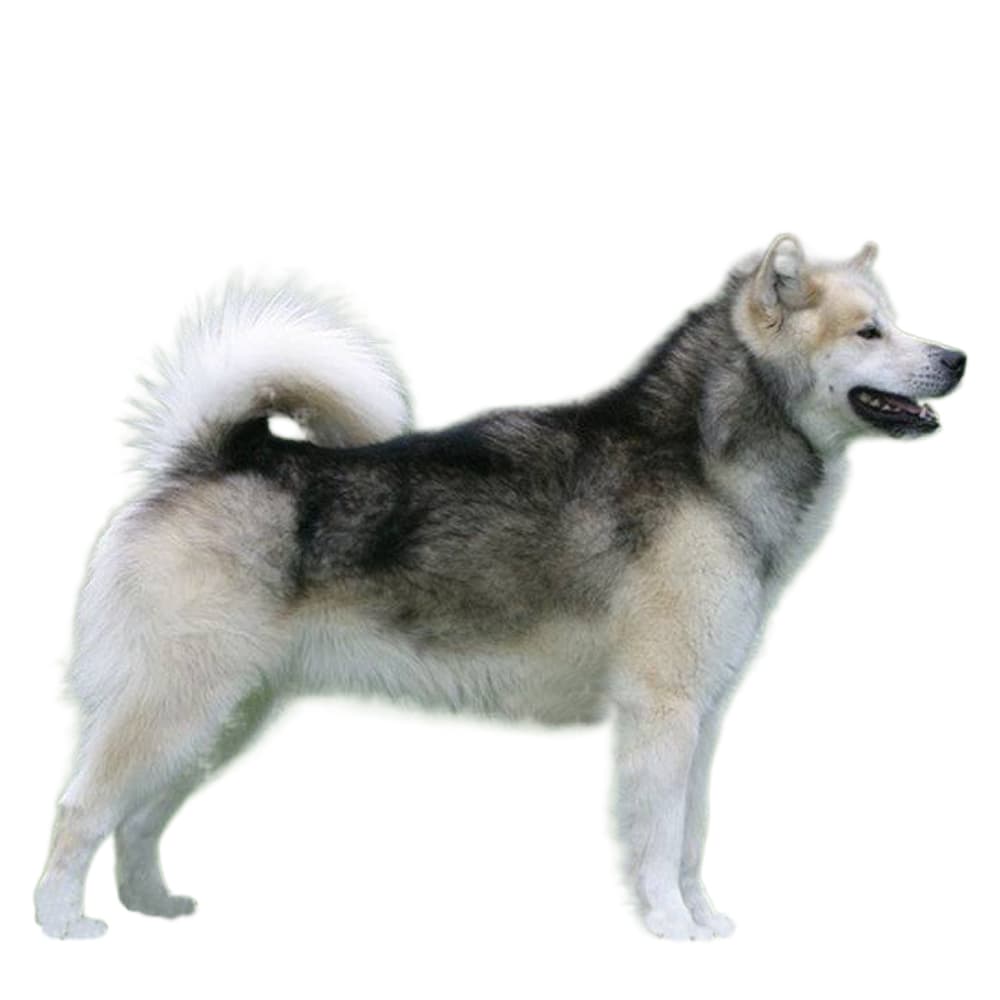Discover your dog's connection to this breed and 200+ others


Discover your dog's connection to this breed and 200+ others



The Greenland Sled Dog, also known as the Greenland Dog or Kalaallit Qimmiat, is an ancient Arctic breed that traces its roots back over 4,000 years. They were originally developed by the indigenous Inuit people of Greenland to serve as sled dogs, assisting with transportation and hunting in the harsh Arctic conditions. These dogs have played a vital role in the survival of the Inuit communities, and their selective breeding over centuries has resulted in a hardy and resilient breed capable of enduring extreme cold and demanding work. Greenland Sled Dogs have a thick, double coat that provides excellent protection against the freezing temperatures of the Arctic. The outer coat is coarse and stands straight, while the undercoat is dense and insulating.
The Greenland Sled Dog is known for its robust health and genetic vitality. Due to centuries of natural selection and isolation in Greenland's Arctic regions, they have a low incidence of common genetic health issues found in many modern dog breeds. They may be prone to polyneuropathy, hip dysplasia, and eye disorders. Some studies on other sled dog breeds have shown that prolonged exercise can induce an overall hypercoaguable state characterized by increased concentrations of von Willebrand factor (vWf) and decreased thyroid hormone concentrations. Von Willebrand disease is the most common inherited bleeding disorder in dogs, so genetic screening for this and other inherited conditions is recommended to assist veterinarians with diagnosis and proactive care, as well as help breeders identify affected and carrier dogs.
Greenland Sled Dogs are known for their strong and independent personalities. Due to their history as working dogs, they have a strong work ethic and are highly energetic and active. They are loyal and affectionate towards their family but may be reserved and aloof around strangers. Early socialization and training are essential to ensure they grow up to be well-adjusted and confident dogs.
These dogs maintain a strong pack mentality and get along well with other dogs but may have a high prey drive, making them less suitable for households with small pets like cats or rabbits. Proper exercise and mental stimulation are crucial to prevent behavioral issues that can arise from boredom and pent-up energy.
The Greenland Sled Dog is one of the oldest and purest dog breeds in the world, with an ancient lineage that can be traced back thousands of years.
Their thick fur and sturdy build allow them to withstand temperatures as low as -40 degrees Celsius (-40 degrees Fahrenheit).
In Greenland, these dogs are still actively used for sled pulling and hunting by some indigenous communities, preserving their traditional role and cultural significance.
Due to their adaptation to the Arctic environment, they have a unique ability to conserve energy during long journeys, making them highly efficient sled dogs.
The Greenland Sled Dog's howl is distinct from that of other dog breeds and is often described as haunting and melodic.
https://www.fci.be/en/nomenclature/GREENLAND-DOG-274.html
https://www.ukcdogs.com/greenland-dog
https://www.akc.org/expert-advice/dog-breeds/sled-dog-breeds-history-future/
https://www.dogbreedinfo.com/greenlanddog.htm
Recommended by top vets with decades of experience
21 breeds
64 genetic health markers
50 genetic trait markers
